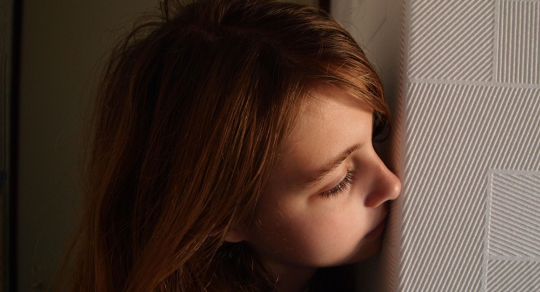It was fifteen years ago when my mother was diagnosed with breast cancer. My first reaction was shock. Worry quickly followed. How serious is it? What is the treatment? What is going to happen???
Frantic concerns were swirling in my head. While I was plenty aware of breast cancer, I had no previous experience of it. No one close to me had been diagnosed. I felt shaky on unfamiliar ground.
I went to work and made an effort to go on as if it were an ordinary day, but I couldn’t concentrate. Finally, when I felt like I was going to cry at my desk, I confided in a trusted coworker about my mother. With the compassion and understanding that comes from having walked this path, she asked me questions about the tests and diagnosis and told me about her family’s experience.
Then I spoke to my supervisor so I could plan for some time off, and she shared her family’s experience with breast cancer. In fact, over and over again when I told others, they shared their stories of a loved one’s experience with breast cancer. I had no idea there were so many people around me that had gone through this. It was like I had joined a club that I didn’t know existed.
This became a silver lining around the cloud of cancer: I wasn’t alone. I was supported. I had a community. And I was a lot less scared.
This is why we need to tell our stories.
Yet so often we go through our days with a shiny veneer of “I’m fine!” while hiding a sadness, grief or struggle that inevitably shows up in our lives. When everyone walks around presenting the image of having it all together while we are struggling, we feel lost and alone. And it’s a big fat lie.
Social media doesn’t help. Scrolling through your Facebook feed provides a continuous highlight reel of others’ carefully curated, photogenic lives. All the best vacations, happiest family gatherings, and most awesomest meals ever. Just thinking about it makes me feel a little deflated.
On some college campuses this pretense has become ingrained in campus culture. At the University of Pennsylvania, students use the shorthand “Penn face” to describe acting happy and confident even when stressed and overwhelmed. At Duke, students feel pressured to be effortlessly perfect without visible effort. At Stanford, it’s called Duck Syndrome because ducks appear to glide smoothly over water while paddling frantically below the surface.
The truth is that everyone’s life has highs and lows. But the more we hide the lows and present a façade of constant highs, the more we cut ourselves off from the support that’s all around us and the more difficult we make it for others to find comfort that they are not alone.
This doesn’t mean that you need to bleed your heart with every person you meet. Brené Brown, who studies vulnerability and shame, says “Our stories are not meant for everyone. Hearing them is a privilege, and we should always ask ourselves this before we share: Who has earned the right to hear my story?”
You get to choose who has earned your story – someone you trust, someone who will understand, someone with whom you have a solid connection. The person you open up to may not be the same for every story, and you may become more comfortable sharing your stories over time.
Give yourself permission to take off the mask of “I’m fine!” and discover your community of support.
“Be careful about hiding yourself away, because walls that are meant to be fortresses can quickly turn into prisons. Be careful about trying to become invisible or you may accidentally disappear.” – Elizabeth Gilbert








